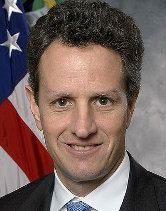May 2011
Debt's the Way I Like It
By Michael J. Katin, MD
Uh huh, uh huh
This past month has seen a great deal of anguish over the mounting national debt of the United States. Congress is being asked to raise the debt ceiling from its current level of 14.29 trillion dollars. The gross domestic product in 2010 was estimated to be 14.87 trillion dollars. It may be more of a psychological barrier than a true economic milestone, but it's always nice to know that if the entire output of our country is dedicated to paying off the debt, with patriotic citizens willing to go without food, medical care, Starbucks, and new I-phones, that in one short year we could be breaking even again. In fact, one unwritten rule for home buying was that the house price should be approximate equal to four to five years' income . In that comparison, we shouldn't feel too uncomfortable about having a national debt of even as high as 60 trillion dollars.
Whether or not that's a legitimate argument, it seems that owing money is no longer considered dishonorable . Even when an individual declares bankruptcy, that person will be eligible to get loans again in several years depending on the situation, and then be able to declare bankruptcy again within two to eight years, depending on whether this was Chapter 7 or Chapter 13 . Maybe we need to learn from this to come up with a new system of practice management.
The typical radiation oncology practice is atypical of other medical practices in terms of the expenses it requires. Compare the differences between radiation oncology and a random other type of specialty ( aesthetic medicine , for example), both treating 40 patients:
In previous generations, operations would cease in very short order. Under the new national attitude, we still have the potential to stay in business We can't use quantitative easing (if we did it, it would be called counterfeiting) but there still are at least four options:
- Don't pay anybody. Since individuals also have no stigma for being in debt, employees should still come to work. There aren't any other jobs, anyway. Not paying the electric bill will be all right unless the electricity is turned off, but we have engineers who should be able to address this .
- Increase income by irradiating food or sterilizing pets .
- ASTRO bonds. These would be backed by “the full faith and credit of the American Society of Radiation Oncology.” Sounds good, certainly better than bonds from Greece or Portugal . This may work until it is realized that the only assets of ASTRO are its mailing list and the gold medals that haven't been awarded yet .
- The ultimate resolution: selling off our practices to ---- you know who

